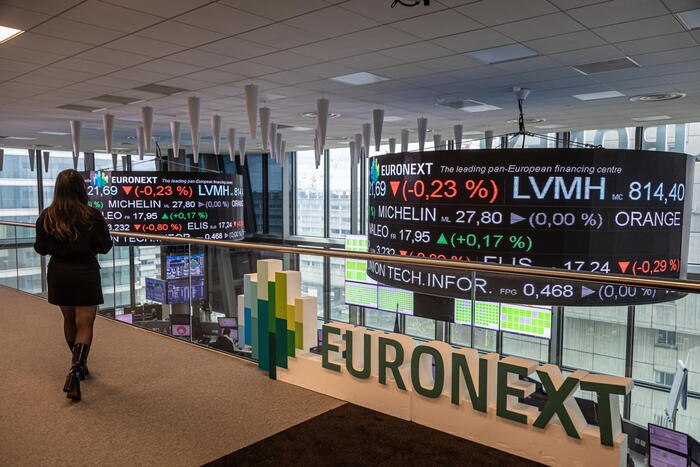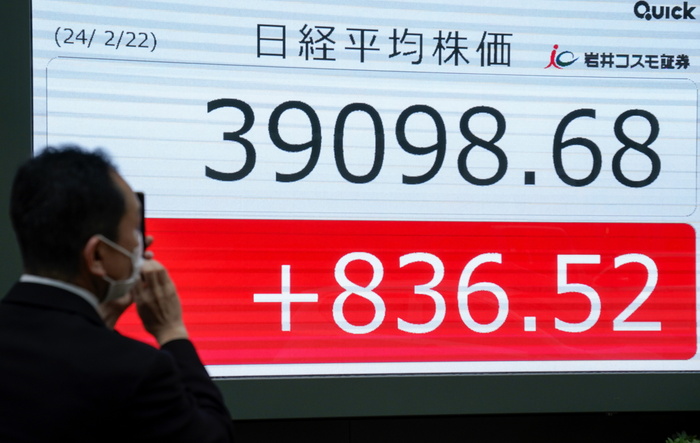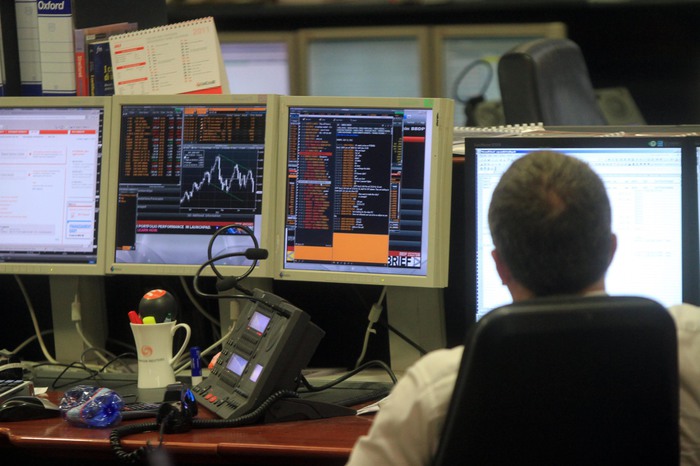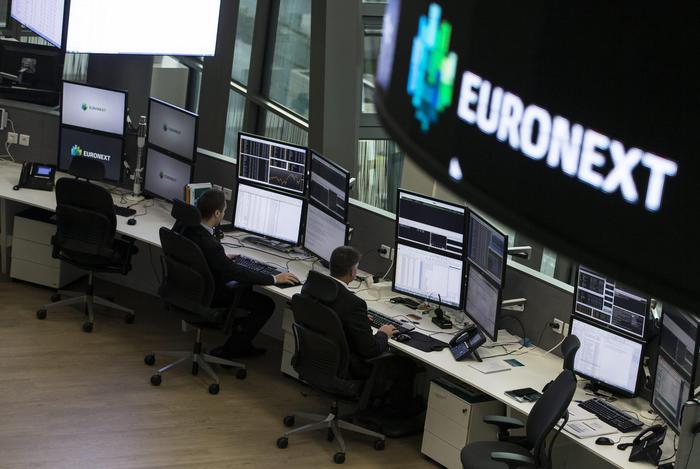The spread between BTP and Bund has jumped to 177 basis points this morning , from yesterday's closing to 161 points, with a rate of return of the Italian 10-year period of 1.16%.
Asian stock markets sink under the weight of fears about the accelerated spread of the coronavirus epidemic that has now reached almost 50 countries starting from China: Tokyo sells 3.67%, Shanghai 3.36% and Hong Kong 2.77% . Seoul was also heavy (-3.35%), after South Korea reported today 256 other cases of infection, up to a total of 2,022, while the victims remain 13. Singapore also suffered, at -2.83%, and Shenzhen, -4.07%.
The Tokyo Stock Exchange accentuates the drop at the end of the session , after the collapse recorded yesterday on Wall Street, falling below 21 thousand points for the first time since September, with the increasingly alarming concerns of investors for a global expansion of the coronavirus . The Nikkei manages to yield up to 3.67 %% at 21.142.96, and a loss of over 800 points. On the currency market, the yen strengthened against the dollar at 108.30, and against the euro at 119.70.
The thud of yesterday hovers the specter of the 2008 crisis - New thump of the world stock exchanges. Moving towards the worst week since 2011, Europe closes in deep red and sees 328 billion vanish. Milan loses 2.66%, slides to lows since December and burns 14 billion. Bad London and Paris, which suffer losses of more than 3%. It also sinks Wall Street, engaged in an unbridled race towards its seven worst days since the financial crisis. The American price lists close with losses over 4% in what some observers call a new "bloodbath" with "free fall" indices. Thursday was particularly black for the Dow Jones and the S&P 500 which experienced the biggest points losses in history. Oil also collapsed, updating the lows of the last 13 months losing 3.9%, and Treasury yields: they fell to new historical lows with investors fleeing to safe haven assets. While the specter of the 2008 crisis hovers over financial markets and the economy, the coronavirus is frightening especially for airlines that fear a September 11-style effect on travel. Central banks are following developments, but at the moment, despite the pressure for a rate cut, they are still watching. Christine Lagarde says it clearly: "at the moment we are not in a phase that requires" a response from the ECB. The Fed is on the same wavelength. The US central bank monitors but for now it does not leak any indication of a possible intervention: the basic idea - says the president of the Chicago Fed Charles Evans - is that the effects of the virus will be temporary and, therefore, at the moment it is premature to consider a monetary easing. Yet economists and analysts are clamoring for a coordinated descent of central banks to deal with the emergence of the virus and restore confidence in the markets. Expectations for a Fed rate cut have risen to over 60% for the March meeting, and many are calling for at least three cuts in the cost of money this year to limit the damage to the economy. The American recovery is now proceeding: despite a weakening of consumption, the fourth quarter GDP rose by 2.1%, in line with expectations. 2019 closed with a growth of 2.3%, a marked slowdown compared to + 2.9% in 2018 and + 2.4% in 2017. The data do not yet include the potential effect of coronavirus, which undoubtedly it will be. Donald Trump himself admitted that he set his campaign for reelection on the strength of the economy and Wall Street. According to Goldman Sachs, the virus could reset US companies' earnings growth in 2020. Convinced that the coronavirus will have an effect on global growth is the IMF, sure that "coordinated action" would be useful to deal with the emergency. Bank of America believes that the world economy has started slower annual growth since 2009, with GDP expected to grow by only 2.8% this year, less than 3.1% initially forecast. "The risks are downward. Our estimates - warns the bank - do not include a global pandemic that would practically stop economic activity in many cities". The coronavirus emergency is forcing the Fund to evaluate a revision of the spring meeting format, scheduled for April in Washington. One of the hypotheses under consideration would be that of 'virtual' meetings. No decision has been made at the moment, however, and the IMF, like the financial markets and the authorities, remains at the window ready to act.
Coronavirus effect on the stock exchanges
2020-02-28T07:42:37.752Z

Yesterday also the thud of European stock exchanges, with Milan losing 14 billion. The specter of the 2008 crisis raises (ANSA)








/cloudfront-eu-central-1.images.arcpublishing.com/prisa/Z45E6KV7VJGUXAKJWH7VA4NJSE.jpg)




